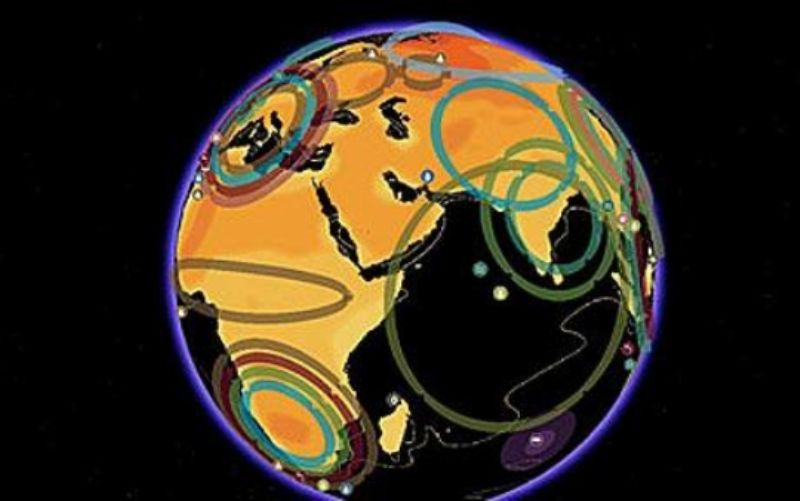Often, the future asks the past why it couldn’t see what was in front of its nose? After a rather frantic time week, I have been working at home today, focusing on a challenge we face in Singapore and on the follow-up to our Biosphere Economy project. In the process, it kept being borne in on me that apparently disconnected events in today’s world would look very different through tomorrow’s lenses.
Take the devastating drought and fires currently impacting Russia. Many people will think that this is something solely for the Russians, while others may feel that there is a measure of poetic justice for a country that has been pretty recalcitrant on climate change – believing that it will be advantaged as the warming trend opens up northern areas to farming and minerals extraction.
But the evidence is that what is happening in Russia is going to have a pretty immediate impact on the lives of millions of people living elsewhere, not least through food prices. As the Financial Times reports today on its front page, wheat prices have risen faster than at any time since 1973 as the implications of the lost grain production in Russia are factored into markets.
And then there is what is happening in Pakistan, with devastating floods – all of which may look disconnected from what is happening in Russia and from what will happen in the future. The BBC reports that 2.5 million people have already been affected in Pakistan. While all of this may seem a long way off for those of us on the other side of the world, the implications for our security and for future would look a great deal clearer from the perspective of someone looking back from, say, 2030.
I don’t know whether the sort of mapping that Google Earth is now offering – or the mapping developed by agencies like the UK Met Office – will help people see what is increasingly before their eyes, but somehow I doubt it. Too much else is before our eyes in the same moment – and the sorts of trajectories our climate may now be on are totally outside our experience.
Someone asked me yesterday whether I was an optimist – and, truth be told, I am, but in the context of the sort of analysis offered by Jared Diamond in his book Collapse. Whereas Adolf Hitler thought that the Third Reich would last 1,000 years, and the architects of the British Empire probably dreamed of something for similar for the pink-painted areas of the globe, my sense is that we will get increasingly used to seeing images of the globe with swelling yellow, orange and red zones showing the areas where global warming – or heating, as some suggest it should not be called – is steadily bringing our planet to the boil.
I shared a platform earlier late last week with Lord Giddens, at an event held in the National Liberal Club, and his odyssey into climate science in recent years (as an open-minded non-scientist) made me wish every business and political leader could spend a day with him. There were still one or two climate skeptics in the room, which made me wonder whether in a decade or two such people will have converted or gone underground, for fear of meeting with rough justice? One question that has been in my mind for some time is whether there could be some form of retrospective justice, perhaps an Ecological Crimes Tribunal, with the criminalisation – even demonisation – of today’s climate-deniers?


Leave a Reply